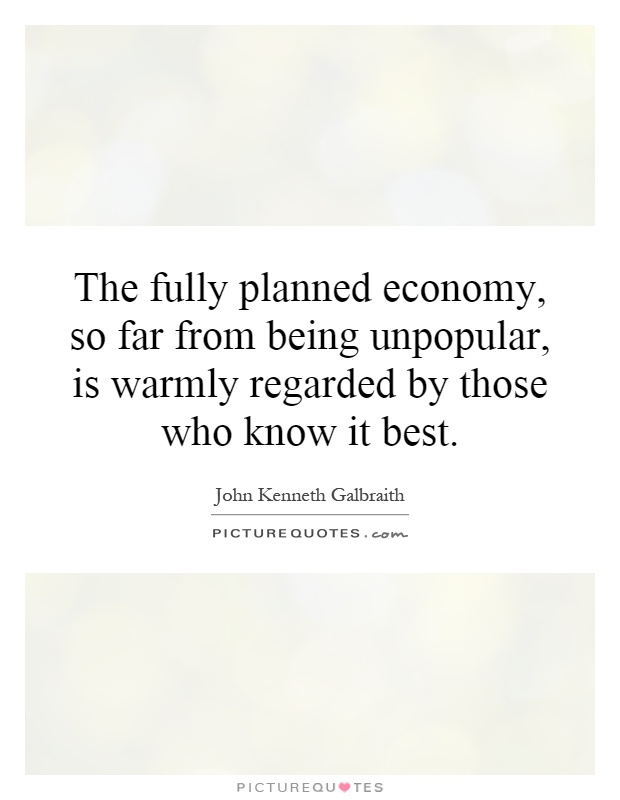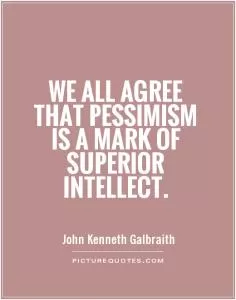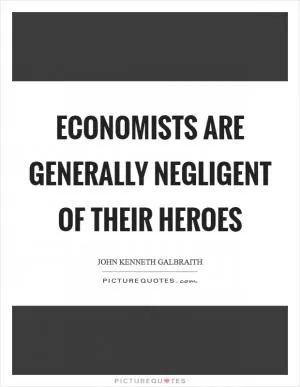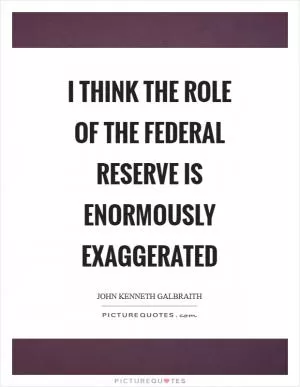The fully planned economy, so far from being unpopular, is warmly regarded by those who know it best

The fully planned economy, so far from being unpopular, is warmly regarded by those who know it best
John Kenneth Galbraith, a renowned economist and public intellectual, was a strong advocate for a fully planned economy. He believed that a planned economy, where the government controls all aspects of production and distribution, was the most effective way to ensure economic stability and social justice. Galbraith argued that a planned economy could eliminate the inefficiencies and inequalities of a market-based system, and provide for the needs of all citizens.In his book "The Affluent Society," Galbraith criticized the prevailing economic orthodoxy of his time, which prioritized growth and consumption over social welfare. He argued that a fully planned economy would allow for more equitable distribution of resources and reduce poverty and inequality. Galbraith believed that the government should play a central role in guiding the economy and ensuring that the needs of all citizens were met.
Despite the criticisms and skepticism that often surround the idea of a fully planned economy, Galbraith believed that it was the best way to achieve economic and social progress. He argued that a planned economy could provide for the basic needs of all citizens, such as food, housing, and healthcare, and ensure that no one was left behind. Galbraith also believed that a planned economy could promote sustainable development and protect the environment, by regulating production and consumption to minimize waste and pollution.
While some may view a fully planned economy as restrictive or authoritarian, Galbraith believed that it could actually enhance individual freedom and autonomy. He argued that a planned economy could provide more opportunities for education, leisure, and personal fulfillment, by ensuring that everyone had access to the resources they needed to thrive. Galbraith also believed that a planned economy could promote social cohesion and solidarity, by reducing competition and inequality and fostering a sense of community and shared purpose.












 Friendship Quotes
Friendship Quotes Love Quotes
Love Quotes Life Quotes
Life Quotes Funny Quotes
Funny Quotes Motivational Quotes
Motivational Quotes Inspirational Quotes
Inspirational Quotes